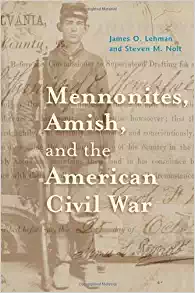
|
Mennonites, Amish, and the American Civil War (Young Center Books in Anabaptist and Pietist Studies)
by James O. Lehman (Author), Steven M. Nolt (Author). Johns Hopkins University Press; 1st Edition edition (October 8, 2007). During the American Civil War, the Mennonites and Amish faced moral dilemmas that tested the very core of their faith. How could they oppose both slavery and the war to end it? How could they remain outside the conflict without entering the American mainstream to secure legal conscientious objector status? In the North, living this ethical paradox marked them as ambivalent participants to the Union cause; in the South, it marked them as clear traitors.
In the first scholarly treatment of pacifism during the Civil War, two experts in Anabaptist studies explore the important role of sectarian religion in the conflict and the effects of wartime Americanization on these religious communities. James O. Lehman and Steven M. Nolt describe the various strategies used by religious groups who struggled to come to terms with the American mainstream without sacrificing religious values―some opted for greater political engagement, others chose apolitical withdrawal, and some individuals renounced their faith and entered the fight. Integrating the most recent Civil War scholarship with little-known primary sources and new information from Pennsylvania and Virginia to Illinois and Iowa, Lehman and Nolt provide the definitive account of the Anabaptist experience during the bloodiest war in American history. |
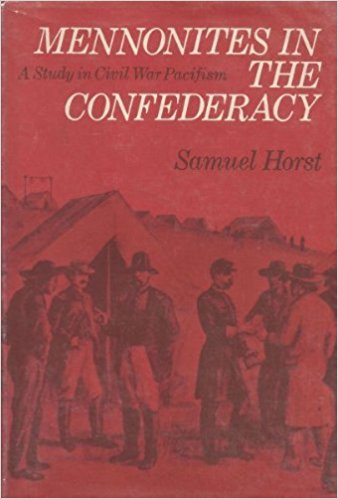
|
Mennonites In The Confederacy: A Study in Civil War Pacifism
by Samuel. Horst (Author) Herald Press,; Second edition (1969) |
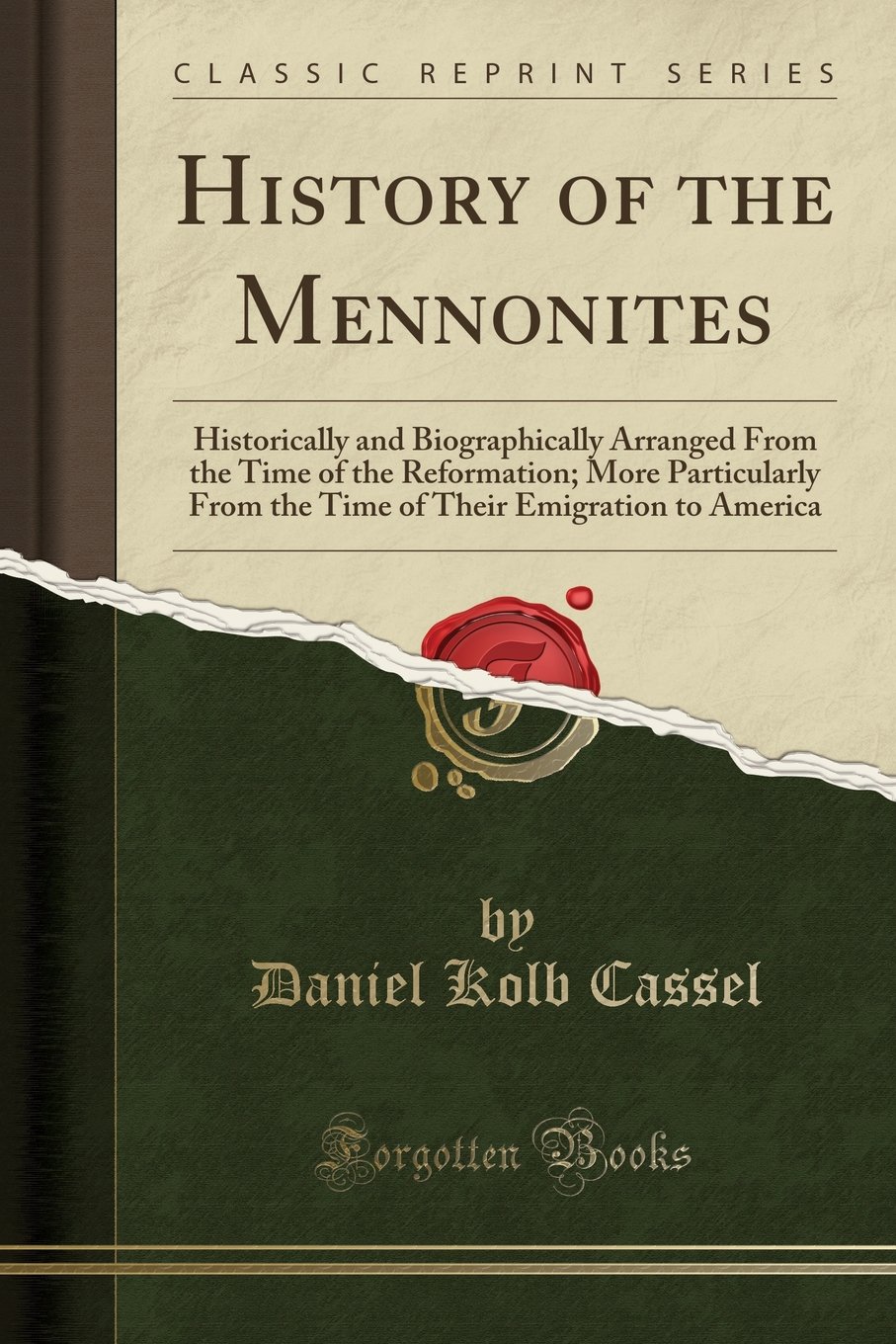
|
History of the Mennonites: Historically and Biographically Arranged From the Time of the Reformation; More Particularly From the Time of Their Emigration to America (Classic Reprint)
by Daniel Kolb Cassel. Original date of publication 1888). ISBN-13: 978-1331853930. This volume, containing brief sketches of the Mennonites in America, beginning with the first settlement and organization at Germantown, Pa., is the result of researches originally intended as sketches for the public press, but at the earnest solicitation of many friends it is now offered in its present form, as a memorial of the two hundredth anniversary of their first organization in America.
A history of the Mennonites, and more especially of those in America, is a task surrounded with many difficulties. But few collections of their books exist in America; in many of their churches no records have been kept, or have been lost; and many old and valuable papers and records that did exist, which would have been the ordinary source of information, have been destroyed or lost, not being regarded at the time of any value. Material facts have been diligently sought after and patient labor cheerfully bestowed upon the work; events and facts have been gathered, both from American and European sources, in order to make it a valuable work for the present and future generations. |
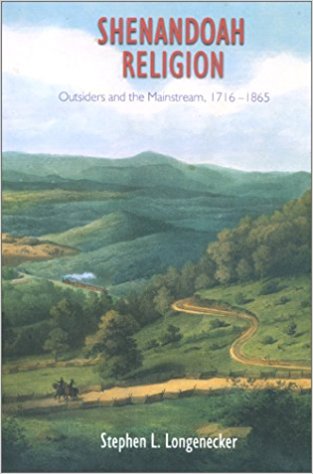
|
Shenandoah Religion: Outsiders and the Mainstream, 1716-1865
by Stephen L. Longenecker (Author). Baylor University Press (September 5, 2002). By surveying the religiously pluralistic setting of the eighteenth and early-nineteenth-century Shenandoah Valley, Longenecker reveals how the fabric of American pluralism was woven. Calling worldliness the "mainstream" and otherworldliness, "outsidernesss," Shenandoah Religion describes the transition certain denominations made in becoming mainstream and the resistance of others in maintaining distinctive dress, manners, social relations, economics, and apolitical viewpoints.
|
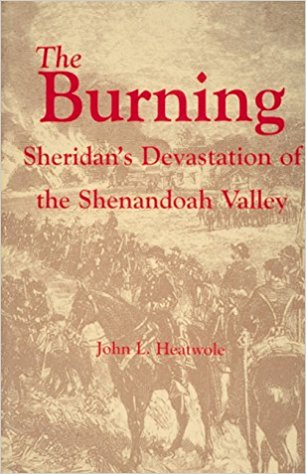
|
The Burning: Sheridan's Devastation of the Shenandoah Valley
by John L. Heatwole (Author) Gen. U.S. Grant's order to cripple the ability of the Shenandoah Valley to supply the CSA with food and fodder affected the civilian population as did no other act of war, including Sherman's march through Georgia. Packed with the firsthand accounts of victims and perpetrators alike, this book brings history alive. [NB: An account of the burning of the Jonas Blosser farm is given on page 111].
|
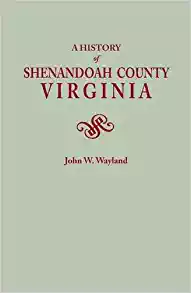
|
A History of Shenandoah County, Virginia, Second Edition
by John W. Wayland (Author) Regional Pub Co; 2nd edition (1989). Peter Blosser II's activities as a conscientious objector and agitator for peace during the revolutionary war are given on pages 207-208, and a genealogy of the Blossers are mentioned on pages 585-586.
|
Conscientious Objection in the Shenandoah: Additional Reading
Subscribe to:
Comments (Atom)

No comments:
Post a Comment